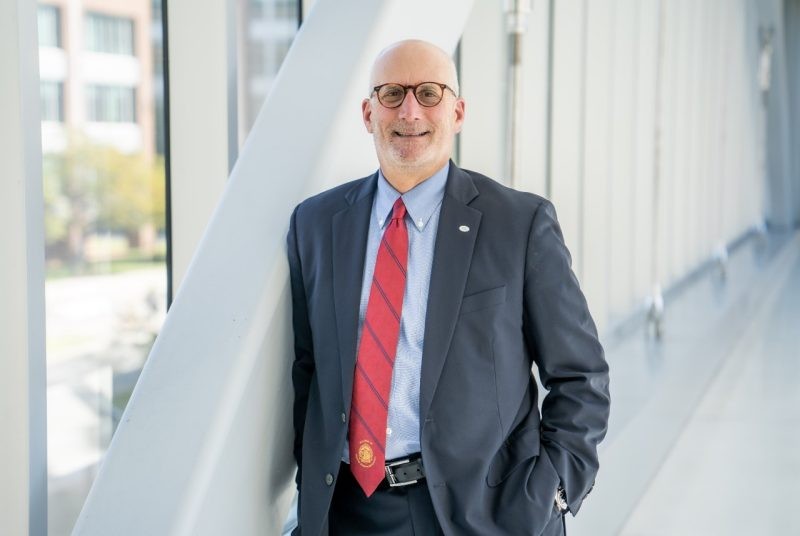Two centuries of surgery at the UC College of Medicine
By Richard Puff
In January 1922, George Heuer, MD, arrived in Cincinnati as the first full-time chair of the Department of Surgery at the University of Cincinnati College of Medicine. Well known as one of the country’s leading neurosurgeons, Heuer was recruited from Johns Hopkins University in Baltimore and was charged with developing a premier academic surgical program at the College of Medicine.
Later that year, Heuer established the third surgical residency program ever in the United States, based on the Halstead philosophy of surgical training. He would soon recruit several other Hopkins surgeons to Cincinnati, further strengthening the UC Department of Surgery. These included Mont Reid, MD, B. Noland Carter, MD, Bill Andress, MD, Max Zinninger, MD, and Ralph Bowers, MD.
While the Medical College of Ohio, the forerunner of the current UC College of Medicine, had numerous nationally respected professors of surgery since the 1820s, the college’s modern surgical department began with the arrival of Heuer and what is often referred to as “the Hopkins Invasion.”
Much more about the development and achievements of the college’s Department of Surgery will be explained at 5 p.m., Tuesday, April 25 during the 2023 Cecil Striker Lecture. “A History of the University of Cincinnati Department of Surgery” will be presented in Kresge Auditorium by Michael Nussbaum, MD.
Nussbaum is senior vice president professor and chair of the Department of Surgery at Virginia Tech Carilion School of Medicine in Roanoke, Virginia. He was interim chair of the UC College of Medicine Department of Surgery from 2006-2007. Nussbaum came to Cincinnati after receiving his medical degree from the University of Pennsylvania in 1981 and completed his general surgery residency at the UC College of Medicine before being appointed to the faculty in 1986.

Michael Nussbaum, MD, former interim chair of surgery at the UC College of Medicine and current senior vice president professor and chair of the Department of Surgery at Virginia Tech Carilion School of Medicine, will deliver the 2023 Striker Lecture April 25. Photo courtesy of Virginia Tech Carilion School of Medicine.
“Surgical history has been a passion of mine since my days as a medical student at the University of Pennsylvania, our nation’s first medical school, which was steeped in historical lore and tradition,” Nussbaum said. “In 1990, Drs. David McFadden, Josef Fischer and I published a centennial tribute to Dr. Mont Reid in the Annals of Surgery and thus began my fascination with the rich history of this storied department of surgery. Since then, I have continued to study and write about surgical history in Cincinnati, as well as my home institutions in Jacksonville and Roanoke where there are many interesting overlaps.”
Nussbaum said his lecture will touch on the history of surgery at the College of Medicine since its founding in 1819. However, his talk will emphasize the last 100 years, starting with the arrival of Heuer to Cincinnati.
Following Nussbaum’s presentation, attendees will have an opportunity to ask questions and, about 6:30 p.m., can attend a reception and view an exhibit, “From Halsted to Heuer: The UC Department of Surgery and the Johns Hopkins Pipeline, 1922-1952,” in the Stanley J. Lucas, MD, Board Room (E005HA) near Kresge Auditorium.
The 14th Striker Lecture is hosted by the Henry R. Winkler Center for the History of the Health Professions, part of UC Libraries. The lecture series is named after Cecil Striker, MD, Class of 1921, a longtime College of Medicine faculty member who was passionate about medical history and who served as the first president of the American Diabetes Association in 1940. Striker died in 1976.
Register to attend the free presentation. The presentation also will be available via Zoom. Registrants will have Zoom details provided to them.
Featured photo at top of a surgery demonstration in the UC amphitheater courtesy of the UC Winkler Center for the History of the Health Professions.
